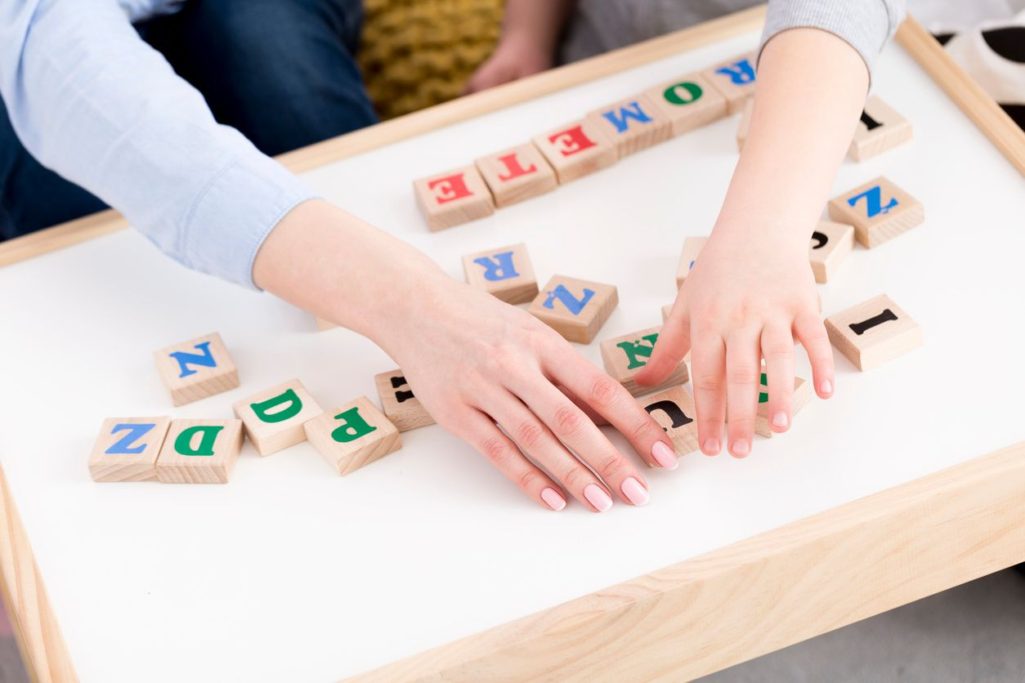There are several stages in speech development for toddlers, and as a parent, you should understand these stages correctly. Otherwise, you’ll be doing the correct thing at the incorrect time.
Take your time and go through this list, you’ll understand everything about speech development. Each step is vital according to the age of the child, and you must learn when you should take the right steps.

Now let’s learn about each stage of speech development. →→↓↓
12-18 months
Babies usually attempt to utter a word yet miss the point. They cannot say it correctly. However, still, we love to listen to them. It’s cute. For instance, have you ever noticed that after pointing to a feline and he says “Ca!” Instead of reprimanding them or laughing at their endeavor you should say, “Indeed, it’s a feline.”
Increase your children’s vocabulary by giving them choices, for example, “Do you need an apple or a banana?”

Toys and books that inspire interest will ultimately help your child’s listening aptitudes
Enjoy time with your little one by singing nursery rhymes and tunes together. Nursery rhymes with actions like “Pat-a-Cake Baker’s Man,” “London Bridge is Falling Down,” and “Hickory Dickory Dock” are always fun. These activities help the child to recall the words.
18-24 months
Repeat words – for instance, “Where are your shoes?”, “They’re blue shoes, aren’t they?” and “How about we put your shoes on.” Redundancy encourages your child to recollect words.
Utilize straightforward guidelines – Direct your child to do something. For example, you can tell him “Get your jacket.” or ‘”Shut the door.” Your child will quickly realize your direction if they are short and straightforward.
Ask him different questions about his body like “Where’s your…” – request your child to point out her ear, nose, foot, and so on.

Kids of this age spend too much time in front of the television. It would help if you encouraged them to play more. Storytelling is another excellent activity for the kids of this age. These activities will encourage them to talk more.
2-3 years
Help them to assemble sentences –
Your kid will attempt to say straightforward sentences around age two. Try to answer their questions utilizing one or two words sentences. For instance, if they say, “Sock off.” you should reply “Yes, we’re taking your sock off.”
Add their name at the beginning of a sentence. In this way, they will tune in more. On the other hand, if you make an inquiry, give them abundant time to answer you.
Turn off the TV and radio – yelling makes it harder for your children to hear you out.

Talk when you clean – children of this age love to assist. Naturally, explain your tasks so that they can understand it easily. Try to do shopping, cooking and cleaning together. It’ll be fun and educational at the same time.
You now have learned about each stage of speech development. Next, let’s concentrate on five major things that you should do to enhance your child’s speech development quickly.
-
Portray Your Actions
Up until now, you must have done various tasks to help the speech development of your child. However, soon you’ll realize that speaking naturally to your child works even better than anything else. So, it would help if you interacted with your child about what you’re doing, or where you are going, whom you’ll meet there, and the like. It may seem to be senseless, but this will be an essential path for your child to learn.
-
Speak Slowly and Clearly
You need to keep in mind how you talk at least when you are in front of your child. Try to connect with your child but don’t rush and let your child see your face while you talk. Specialists continually caution new parents about ‘baby talk.’ Always use correct wording even when you are just addressing them.

-
Construct Vocabulary
Always state the name of everything you see. Continue your lopsided discussion with your child. It’ll give them an incredible reason for communicating. If you want to concentrate on their vocabulary and aptitudes, at first concentrate on hues, names, and numbers. Check for gestures while talking. The gesture and the words should be in agreement. It would help if you pointed out different things like ‘here’s your green car,’ or ‘talk in a friendly way with Granny,’ and so on.
-
Repeat and Build
At the point when your child starts talking, redundancy is a crucial factor to make them learn new words. So reciprocate when they talk and add something to depict it. For example, if she says a car, you should reply “Yes, a blue car.” If she misspeaks a word, they’ll repeat it to pronounce it accurately.

-
Read with Your Child
One of the most significant approaches to assist your child in developing conversation skills is to build their vocabulary. At this young age, a story may not get their attention, but picture books will easily hold the child’s interest because of their colorful pages. Reading a book together is enjoyable. While you are looking at pictures together you can ask your little one,”’What’s this?” or “Where is the… ?” You’ll be amazed by their reactions.
learn more about speech development within children>>.https://www.asha.org/public/speech/development/



One thought on “Speech Development In Toddlers”